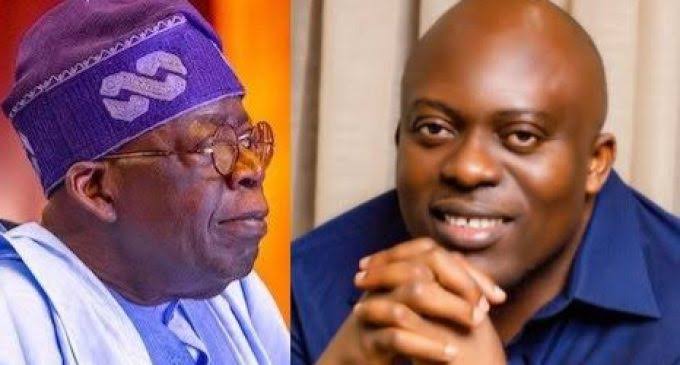As Nigeria prepares to mark another Democracy Day on June 12, residents of Rivers State are calling on President Bola Ahmed Tinubu to use the occasion as an opportunity for healing and reconciliation in their politically tense state.
In recent months, Rivers State has been engulfed in political uncertainty, fueled by escalating tensions between Governor Siminalayi Fubara and factions within the State House of Assembly. Rumors of a possible federal declaration of a state of emergency have heightened fears among the population.
Now, on a day meant to celebrate civil liberties, the rule of law, and citizen participation in governance, many in Rivers are appealing to the president for what they describe as a true gift of democracy—restoring calm and federal neutrality to the state. Madam Grace Iyalla, a retired teacher from Eleme, expressed the exhaustion many residents feel over the political impasse.
“Mr. President, this June 12, we beg you—lift the threat of emergency rule from Rivers State. Let it be your Democracy Day gift to us,” she said, her voice both firm and emotional.
“Rivers people are peaceful. This fight is between politicians. We should not suffer for their ambitions.”
Iyalla urged President Tinubu to call all warring factions to order and issue a national address affirming the federal government’s neutrality in the state’s political affairs.
“All we want is development, jobs, and peace in our communities—not soldiers patrolling our streets or courts clashing with lawmakers.”
Chinedu Amadi, a youth activist and community organizer in Obio/Akpor LGA, believes June 12 presents an opportunity for the president to initiate a broader national conversation on governance at the state level.
“Democracy is not just about elections—it’s about people having a real say in how they’re governed,” Amadi said.
“We want the president to use this day to advocate for constitutional reforms that reduce godfatherism in state politics. That’s the root cause of crises in Rivers and many other states.”
Amadi also called for special federal intervention programs targeting unemployed youth in Rivers State, including vocational training, technology hubs, and small business grants.
“We have the energy. We just need opportunities—not police vans.”
For Mrs. Joy Opurum, a trader at Mile 3 Market, June 12 should also serve as a day of economic reckoning for Rivers State.
“Rivers has given this country oil, gas, and revenue. But in many of our communities, there’s still no water, no electricity, no clinics,” she lamented.
“This Democracy Day, let the president announce real development projects for Rivers—new roads, better schools, industries that create jobs.”
Opurum joined others in calling for an end to political interference in the state’s internal affairs.
“We voted for our leaders. Let them work. Don’t punish us for their disagreements.”
Ejims Chikere, an elder statesman in the Obio/Akpor community, echoed these sentiments. He said as Nigeria celebrates the resilience of its democracy, the message from Rivers is clear: democracy must mean more than just survival—it must stand for progress, inclusion, and peace.
“Let June 12 be a turning point, not just a public holiday,” Chikere said.
In the creeks of Ogoni land, where the scars of oil exploration still run deep, environmental activist Tamuno Perewari says the political instability in Rivers is not just a governance issue—it’s a justice issue.
“Instability breeds neglect,” Perewari said during an interview at a local community center in Bori. “When there’s chaos at the top, environmental remediation stops. Clean water projects are abandoned. Oil spills go unmonitored. Communities that were already marginalized get forgotten entirely.”
Perewari, who works with a regional NGO focused on ecological restoration and public health, believes the political stalemate has already delayed ongoing cleanup efforts mandated by the UNEP report on oil pollution in the Niger Delta. He warns that if the federal government imposes emergency rule or continues to play a partisan role in the state’s politics, the consequences will ripple far beyond the capital city.
“We cannot protect our environment in a climate of political confusion,” he said. “We need leadership that listens to the people—not one that listens only to politicians.”
He called on President Tinubu to use June 12 not just to affirm democracy, but to recommit to federal promises made to the Niger Delta region over decades.

























